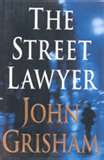I am sure everybody should have heard of William Shakespeare. Being regarded not only as the foremost dramatist of his time, but also the world's preeminent dramatist, Shakespeare was also the greatest writer in the English language.
Evidence indicates that both he and his world looked to poetry, not playwriting, for enduring fame. In his poems and plays, Shakespeare never fail to invent thousands of words, often combining or contorting Latin, French and native roots. His impressive expansion of the English language, according to the Oxford English Dictionary, includes words such as: birthplace, courtship, downstairs, radiance, schoolboy, hunchbacked etc. proving that his degree of literacy was excellent.
Shakespeare wrote more than 30 plays. These are usually divided into four categories: histories, comedies, tragedies and romances. His earliest plays were primarily comedies and histories such as Henry VI and The Comedy Of Errors, but in 1596, Shakespeare wrote Romeo and Juliet, his second tragedy, and over the next dozen years he would return to the form, writing the plays for which he is now best known: Julius Caesar, Hamlet, Othello, King Lear, Macbeth and Anthony and Cleopatra. In his final years, Shakespeare turned to the romantic with Cymbeline, A Winter's Tale and The Tempest.
Now I shall touch on why I chose Shakespeare. Since my primary school years, I have came across some of his poems and plays and they have left a very deep impression on me. I am indeed awed by his degree of his literacy, there is no doubt that he is indeed the greatest writer in the English language. He is able to come up with words that no one thought of before and write amazing plays and poems that can captivate the reader. I really respect and admire him a lot.
Here are my 3 favourite poems:
---------------------------------------------------------------------------
They that have power to do hurt and will do none
---------------------------------------------------------------------------
They that have power to hurt and will do none
That do not do the thing they most do show,
Who, moving others, are themselves as stone,
Unmoved, cold, and to temptation slow;
They rightly do inherit heaven’s graces
And husband nature’s riches from expense;
They are the lords and owners of their faces,
Others but stewards of their excellence.
The summer’s flower is to the summer sweet,
Though to itself it only live and die,
But if that flower with base infection meet,
The basest weed outbraves his dignity:
For sweetest things turn sourest by their deeds;
Lilies that fester smell far worse than weeds.
That do not do the thing they most do show,
Who, moving others, are themselves as stone,
Unmoved, cold, and to temptation slow;
They rightly do inherit heaven’s graces
And husband nature’s riches from expense;
They are the lords and owners of their faces,
Others but stewards of their excellence.
The summer’s flower is to the summer sweet,
Though to itself it only live and die,
But if that flower with base infection meet,
The basest weed outbraves his dignity:
For sweetest things turn sourest by their deeds;
Lilies that fester smell far worse than weeds.
-------------------------------------------------------------
When I consider every thing that grows
-------------------------------------------------------------
When I consider every thing that grows
Holds in perfection but a little moment.
That this huge stage presenteth nought but shows
Whereon the stars in secret influence comment.
When I perceive that men as plants increase,
Cheerèd and checked even by the self-same sky,
Vaunt in their youthful sap, at height decrease,
And wear their brave state out of memory;
Then the conceit of this inconstant stay,
Sets you most rich in youth before my sight,
Where wasteful Time debateth with decay
To change your day of youth to sullied night;
And all in war with Time for love of you,
As he takes from you, I engraft you new.
Holds in perfection but a little moment.
That this huge stage presenteth nought but shows
Whereon the stars in secret influence comment.
When I perceive that men as plants increase,
Cheerèd and checked even by the self-same sky,
Vaunt in their youthful sap, at height decrease,
And wear their brave state out of memory;
Then the conceit of this inconstant stay,
Sets you most rich in youth before my sight,
Where wasteful Time debateth with decay
To change your day of youth to sullied night;
And all in war with Time for love of you,
As he takes from you, I engraft you new.
-------------------------------------------------------------
Shall I compare thee to a summer's day
-------------------------------------------------------------
Shall I compare thee to a summer's day?
Thou art more lovely and more temperate.
Rough winds do shake the darling buds of May,
And summer's lease hath all too short a date.
Sometime too hot the eye of heaven shines,
And often is his gold complexion dimmed;
And every fair from fair sometime declines,
By chance, or nature's changing course, untrimmed;
But thy eternal summer shall not fade,
Nor lose possession of that fair thou ow'st,
Nor shall death brag thou wand'rest in his shade,
When in eternal lines to Time thou grow'st.
So long as men can breathe, or eyes can see,
So long lives this, and this gives life to thee.
Thou art more lovely and more temperate.
Rough winds do shake the darling buds of May,
And summer's lease hath all too short a date.
Sometime too hot the eye of heaven shines,
And often is his gold complexion dimmed;
And every fair from fair sometime declines,
By chance, or nature's changing course, untrimmed;
But thy eternal summer shall not fade,
Nor lose possession of that fair thou ow'st,
Nor shall death brag thou wand'rest in his shade,
When in eternal lines to Time thou grow'st.
So long as men can breathe, or eyes can see,
So long lives this, and this gives life to thee.

